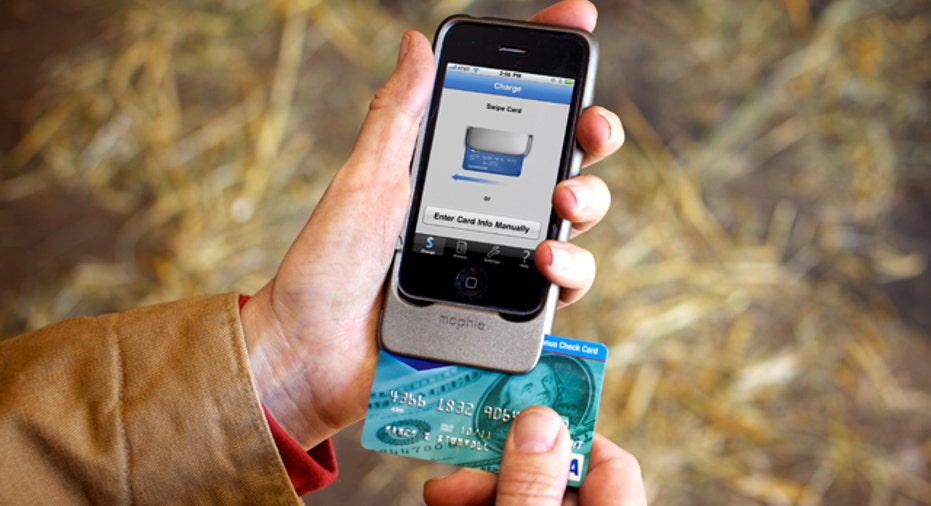Time for a New Credit Card?

Businesses that were riding out the recession with an inadequate credit card should start shopping now for new and better options.
Pete Czech, founder of Web design and website management firm New Possibilities Group in Rutherford, New Jersey, recently took his wife on a spur-of-the-moment getaway to Ireland. And why not? He’d recently acquired a new credit card, and with the additional airline reward miles he’d racked up using it, the airfare cost him almost nothing.
Two years ago, banks were still fighting their way through a credit crisis, and getting a new credit card was about as easy as getting 50-yard-line tickets to the Super Bowl. Today, the lending climate has improved.
While you’ll still need an outstanding credit score to get a card with great rates or a fantastic rewards program, it’s at least possible. If your existing credit card isn’t working as hard for your small business as you are — if, in other words, it has a high interest rate or no rewards program, issues poorly detailed statements, or doesn’t offer free additional cards for your employees — it’s time to go shopping for a new one.
What to look for To find the right card, take a look at your business lifestyle. If you sometimes carry a balance, your primary objective is to find a card with a low interest rate. If you don’t, you’ll want a card with a rewards program that matches your spending habits. Because he travels frequently, Czech chose a card that rewards him with elite-status frequent flyer miles on his favored airline for every dollar he charges to his card.
You may not travel much, but perhaps you spend a lot on gasoline, office supplies or hotel accommodations; you can find cards that offer cash rebates on all those spending categories, sometimes equal to as much as 5 percent of what you charge. Or maybe your top concern is getting a better handle on employee spending; some card issuers offer statements that categorize and aggregate spending by employee and type of expenditure.
Business versus consumer cards If you want statements with that degree of detail, you’re likely going to need a card specifically designed for businesses. These “business cards” make sense for many small-business owners. Some offer extra perks, such as access to airline airport clubs. They’re also a good option if you need extra cards for your employees.
If you don’t really need those extra cards or perks, though, Beverly Harzog, a credit card expert for informational website Credit.com, says you may prefer an ordinary consumer, or personal, credit card for your business needs.
“Right now, having a business card is much riskier than having a consumer card, because business cards are not covered by the 2009 Credit Card Accountability, Responsibility and Disclosure Act,” Harzog explains. The CARD Act requires issuers of consumer credit cards to notify customers at least 45 days before increasing their interest rate, changing certain fees or making other significant changes to their accounts. It also prohibits interest-rate increases on existing balances, a protection Harzog holds dear.
“Say you’re carrying a $5,000 balance at 13 percent interest, and suddenly your card issuer decides they’re a little nervous about your account,” she says. “If it’s a business card, the issuer can raise your rate on your existing balance. You’re at their mercy.”
Improving your odds Before applying for a new credit card, Ben Woosley, director of marketing and consumer research for CreditCards.com, an online resource for credit card information, suggests that you check your personal credit score and, if you’re applying for a business card, your business’s score.
“If your credit score isn’t good, you might want to wait until you can bring it up,” agrees Harzog. “A lot of the best cards offered today require excellent credit, meaning a FICO score of 750 and up. If you’re hovering around 700, you might have options, but it’s best to hold off, if you can, and improve your credit score.”
You may be able to do that in a matter of months, she notes. To boost your credit score, she recommends paying your bills on time. Also, reduce your debt-to-available-credit ratio by paying off existing debts. The less you’ve borrowed relative to the amount of credit you have available to you, the higher your credit score.
Meanwhile, don’t cancel any of your existing cards. That could hurt your debt-to-credit ratio and the length of your credit history, another factor in your credit score. Don’t open any other credit accounts before applying for a new card, either, since that can ding your score, too.
Finally, says Woosley, don’t forget to consider your existing bank when shopping for a new card. It already knows you and may be eager for a bigger share of your business.
If it is, you could soon find yourself paying a lower rate of interest or earning greater rewards on your credit card spending.



















